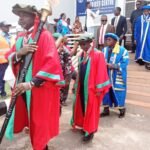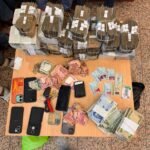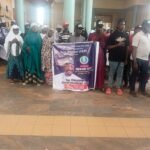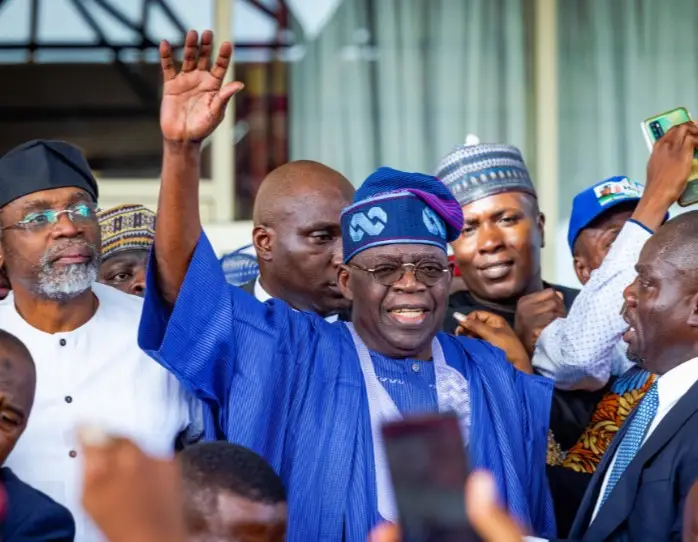
By Iyiola Olalere
The Tinubu Media Support Group (TMSG) is convinced that the creative initiatives of the Tinubu administration in the education sector will introduce a fresh breath of air to the sector.
.
It says in a statement signed by its Chairman Emeka Nwankpa and Secretary Dapo Okubanjo that the initiatives could be likened to building blocks for a progressive and modern education system.
According to TMSG: “The education sector is one that the President Bola Tinubu administration had since inception been quietly reviving for utmost efficiency in the last one year. Even the perennial agitation of tertiary institutions work forcre have been on the decline resulting to peace on the campuses. Calls for strikes are also dying down.
“This we attribute to federal government’s decision to remove universities and other tertiary institutions from the Integrated Personnel Payroll Information System (IPPIS) payment platform which has since its introduction in 2006 been a source of acrimony between the unions and various administrations.
“But what may end up cementing President Tinubu’s place in history in this sector is the Nigerian Education Loan Fund (NELF) which started only a few days ago, but has received well over 60,000 applications from students of federal government institutions.
“We invite Nigerians to note that the President had delayed the take off of the interest-free student loan scheme to ensure that it also covers students who may be more interested in skills acquisition than University education
“The ultimate intention of the move is to guarantee sustainable higher education and functional skill development for all Nigerian students and youths by ensuring that indigent students do not drop out of school due to financial constraints.
“As for funding, TETFUND made its highest ever disbursement of N643.4bn to tertiary institutions since inception on President Tinubu’s watch with Colleges of Education getting a minimum of N1.3bn while individual Polytechnics and Universities received N1.6bn and N1.9bn respectively.
“This quantum of funds improves teaching, research, and overall development of our tertiary institutions. Staff beneficiaries are able to partake in conferences locally and internationally. It is also used to fund the writing of textbooks and also cater for payments of honorarium to supervisors in education related programmes. So, this fund has a major impact on the development of tertiary institutions, staff, and students.”
TMSG also noted that the Tinubu administration has no plan to ignore the issue of out-of-school children and the need to boost secondary school education.
“Like the President, we consider the situation of out-of-school children unacceptable and are aware that he has approved system-wide policies that will also reduce the number of school-age children roaming the streets.
“The approved policies are captured as DOTS, an acronym for: Data Repository, Out-of-School Children Education, Teacher Training & Development, and Skill Development & Acquisition.
“The Tinubu administration is making efforts to reduce the menace of out-of-school children in its ongoing intervention on non-formal education which has seen grants released to 312 Integrated Qur’anic and Tsangaya Education (IQTE) Centers in 24 States and the FCT. These grants were given the construction of 419 classrooms, 66 recitation halls, 25 recitation shades, 140 offices, 27 hostels, and 225 VIP toilets.
“A total of 2,000,000 out-of-school children (Almajiris) have been enrolled in basic schools as well as an Arabic literacy programme offering vocational training.
“Also, we want to place on record that Vice President Kashim Shettima was recently in Bauchi where he launched a multi-year Accelerated Senior Secondary Education Programme (ASSEP) which is meant to pave way for the overhaul of school infrastructure and the facilitation of modernised curricula and an integrated virtual learning technology.
“The initiative is a major policy drive to bridge the gaping educational divide in the country, with the North-East region as the starting point.
“We also know that 10,000 teachers and educators have been trained in preparation for the past establishment and launch of 37 smart schools, one in each state and the Federal Capital Territory (FCT)
“In addition, a National Education Repository and Data Bank is also in the works for the purpose of collecting, collating, and warehousing all education records from 1932 through a dedicated website.
“There is already an approval from President Tinubu for a comprehensive national census of schools, teachers, and students in the country to address the lack of coordinated data critical for effective educational sector planning.
“We agree with the Education Minister, Professor Tahir Mamman that the data bank and census will go a long way to enhancing decision-making and policy formulation because the data collated will aid evidence-based planning and help identify areas where improvement is required,”TMSG added (Flowerbudnews)











